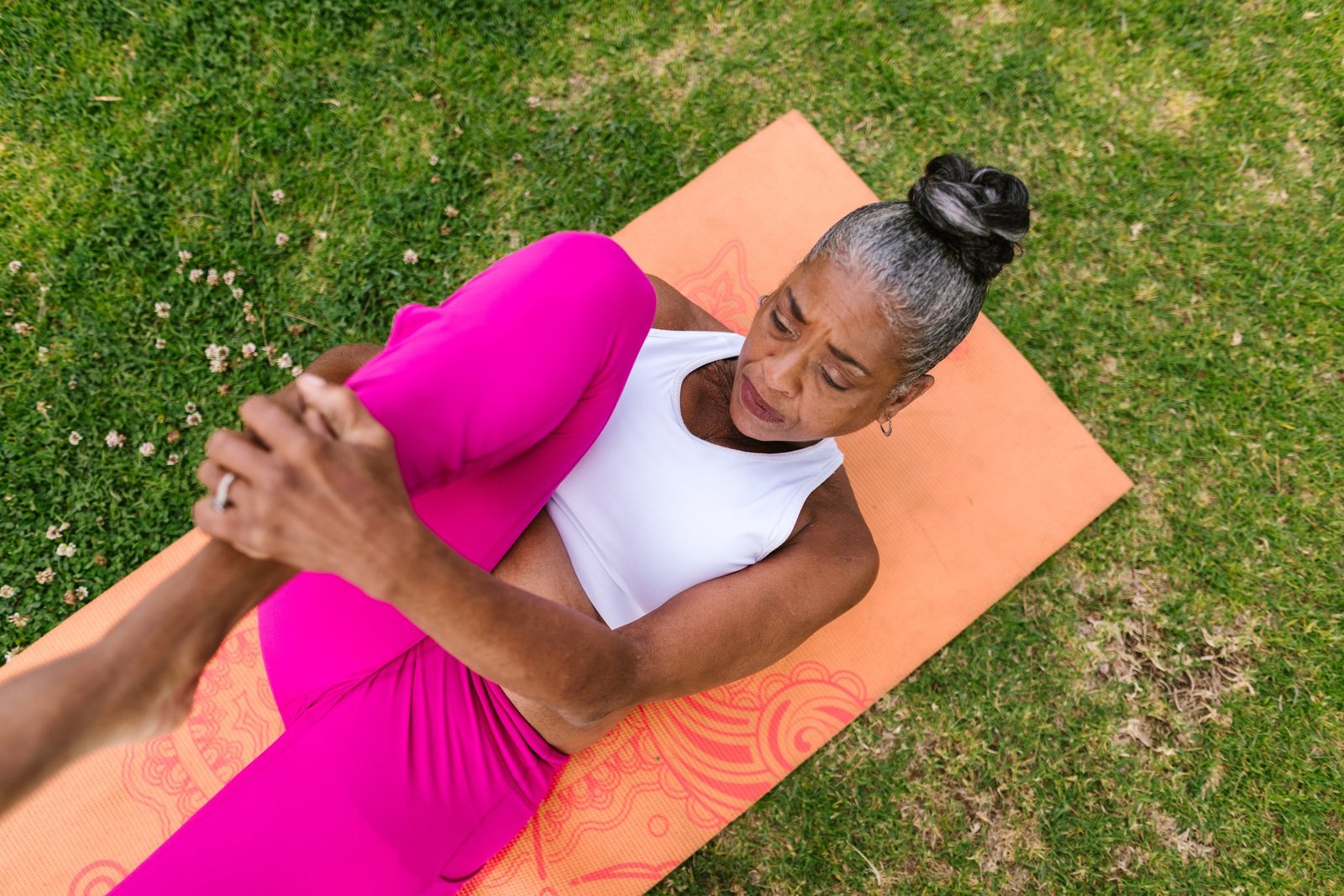

Exercising in Menopause
So, ladies, what are you waiting for? It’s time to embrace the power of exercise and show menopause who’s boss. Get ready to feel stronger, happier, and more confident than ever before. Let’s break a sweat and slay those symptoms together!
Exercising during menopause is an essential aspect of maintaining overall health and well-being. As your body undergoes various changes, staying active can help manage symptoms such as weight gain, mood swings, and bone density loss. Start with low-impact exercises like walking, swimming, or cycling. These activities are gentle on your joints and can be easily incorporated into your daily routine. Aim for at least 150 minutes of moderate aerobic activity each week to keep your heart healthy and improve your endurance.

Strength training is equally important during menopause. As estrogen levels decline, women are at a higher risk of osteoporosis and muscle loss. Incorporate weight-bearing exercises, such as lifting weights, using resistance bands, or performing body-weight exercises like squats and lunges. Strength training not only helps build muscle mass but also supports bone health and boosts metabolism. Aim to include these exercises two to three times per week, allowing for rest days in between sessions.
Flexibility and balance exercises are also crucial during this phase of life. Activities like yoga, Pilates, and tai chi can improve your flexibility, balance, and coordination, reducing the risk of falls and injuries. These practices also promote relaxation and stress reduction, which can help manage mood swings and improve sleep quality. Consider joining a class or following online tutorials to stay motivated and consistent with your practice.
Listening to your body and adjusting your exercise routine as needed is important. Menopause can bring about fatigue and fluctuations in energy levels, so it’s essential to be kind to yourself and not overexert. Pay attention to how your body feels and modify your workouts accordingly. If you’re experiencing a particularly challenging day, opt for gentler activities like stretching or a leisurely walk.
Stay hydrated and maintain a balanced diet to support your exercise routine. Proper nutrition and hydration are vital for energy levels and overall health. Focus on a diet rich in fruits, vegetables, lean proteins, and whole grains. Additionally, ensure you’re getting enough calcium and vitamin D to support bone health.
Seek support and stay social. Exercising with friends or joining a fitness group can provide motivation and make your workouts more enjoyable. Sharing your experiences with others going through similar changes can also offer emotional support and encouragement. Remember, staying active during menopause is not just about physical health but also about maintaining a positive outlook and quality of life.
Rest and Recovery: Last but not least, don’t forget about the importance of rest and recovery. Treat yourself to a massage or indulge in a relaxing soak in the tub. Your body deserves some TLC, so take the time to rejuvenate and recharge. You’ve earned it!








